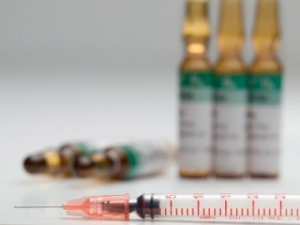FREE CASE EVALUATION: CALL 1-800-632-1404
You may be visiting this website because you or a loved one has experienced a testosterone replacement injury including a testosterone stroke, a testosterone heart attack or a testosterone blood clot. If so, please keep reading.
In the opinion of some, large businesses have turned testosterone-boosting drugs into a $2 billion marke. In a new study in the Journal of the American Medical Association there are concerns over Low T therapy: it may cause cardiovascular events such as heart attacks, blood clots, strokes and pulmonary embolism. These would result in a low testosterone injury.
Over the past couple of years, therapies such as Eli Lilly’s Axiron; AbbVie’s AndroGel; and Auxilium and GlaxoSmithKline’s Testim have taken off like a rocket as companies rolled out new products and amped up their advertising. IMS Health says sales of testosterone drugs grew by 90% over 5 years, reaching $1.9 billion in 2011. By 2017, the entire testosterone market is expected to hit $5 billion.
Researchers analyzed the medical records of 8,709 male veterans with low testosterone who had a coronary angiogram. Of that group, 1,223 men began testosterone therapy after their procedure. The rate of death, heart attack or stroke hit 25.7% in that group, compared with 19.9% in the men who didn’t use testosterone drugs
After controlling for various factors, the researchers calculated a 29% increase in risk for the men who used testosterone. And as Forbes points out, the change in risk was the same in men who had coronary artery disease as in men who didn’t–and the testosterone group had a lower risk profile to begin with. The research isn’t conclusive; as an observational study, it’s more of a flag for future study than a clear warning. A JAMA editorial points out that the analysis includes little information about whether the drugs were prescribed according to label guidelines. But the editorial also advises caution. The number of prescriptions is growing quickly, and drugmakers continue to aggressively advertise the treatments. As the editorial points out, some men are using testosterone for lifestyle reasons, rather than to replace actual, clinical deficits in their hormone levels–for antiaging and “physical enhancement,” for instance, JAMA notes. Does any increase in risk apply to these younger, perhaps healthier, men?
Here’s where pharma advertising comes in. Earlier this year, Consumer Reports urged men to be wary about starting hormone therapy, saying most men really don’t need the drugs. The magazine cited drugmakers’ big-time spending on marketing the products, with promotional expenses up to $100 million in 2012 from $14 million in 2011. For 2013, that figure may grow substantially. For the first half of this year alone, AbbVie spent more than $45 million promoting Androgel, which is now its second-best-selling drug. Still, AbbVie, Lilly and other drugmakers say they only market their testosterone products for men whose hormone levels are clinically low. For now, the data on testosterone use is far from comprehensive. A National Institutes of Health study is set to wrap up next year. In the meantime, the JAMA researchers say their study at least offers some perspective. “Prior to this study, we didn’t know much about the cardiovascular risk,” said lead author Michael Ho, a cardiologist with the Veterans Affairs Eastern Colorado Health Care System.
If you or a loved one have experienced a testosterone replacement therapy injury after undergoing low testosterone therapy, please contact our team of lawyers today for a free case evaluation at:
CALL: 1-800-632-1404
FILL OUT THIS FORM FOR A FREE CONSULTATION AND CASE EVALUATION:
NOTE: Our team of attorneys will review potential cases for all fifty states, including Alabama Alaska Arizona Arkansas California Colorado Connecticut Delaware Florida Georgia Hawaii Idaho Illinois Indiana Iowa Kansas Kentucky Louisiana Maine Maryland Massachusetts Michigan Minnesota Mississippi Missouri Montana Nebraska Nevada New Hampshire New Jersey New Mexico New York North Carolina North Dakota Ohio Oklahoma Oregon Pennsylvania Rhode Island South Carolina South Dakota Tennessee Texas Utah Vermont Virginia Washington West Virginia Wisconsin and Wyoming.
